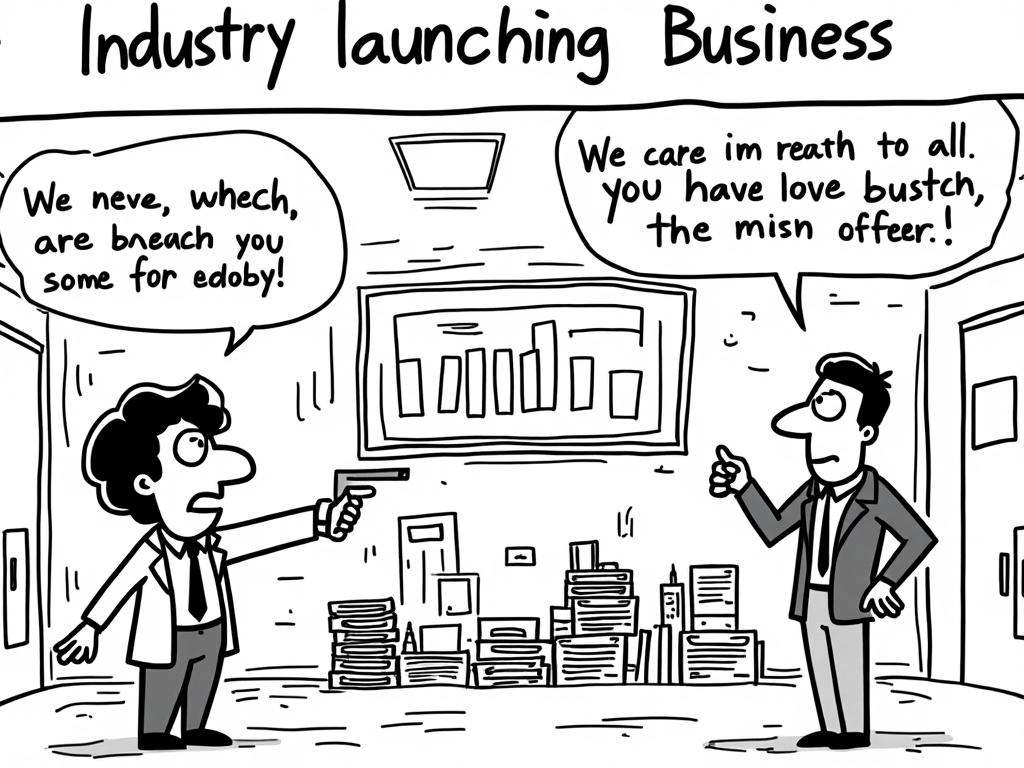
Is IFZA Suitable for Foreign Investors in Dubai? A Complete Strategic Guide
Reading time: 8 minutes
Ever wondered if Dubai’s International Financial Zone Authority (IFZA) could be your gateway to Middle Eastern business success? You’re not alone. Thousands of foreign investors grapple with this decision annually, and the stakes couldn’t be higher—choosing the wrong jurisdiction can cost you time, money, and market opportunities.
Let’s cut through the marketing noise and examine whether IFZA truly delivers on its promises for international entrepreneurs and investors.
Table of Contents
- Understanding IFZA: Beyond the Headlines
- Strategic Advantages for Foreign Investors
- Comparative Analysis: IFZA vs. Other Dubai Free Zones
- Real-World Success Stories
- Common Challenges and Solutions
- Cost-Benefit Analysis
- Your Strategic Action Plan
- Frequently Asked Questions
Understanding IFZA: Beyond the Headlines
Here’s the straight talk: IFZA isn’t just another free zone—it’s a comprehensive business ecosystem designed specifically for knowledge-based industries and international trade. Established in 2017, this Dubai South-based authority has quickly gained traction among foreign investors seeking strategic Middle Eastern positioning.
What Makes IFZA Different?
Unlike traditional free zones focused on manufacturing or logistics, IFZA targets service-oriented businesses and knowledge economy sectors. Think consultancy firms, technology companies, trading enterprises, and financial services providers.
Key Regulatory Framework:
- 100% foreign ownership permitted
- No corporate or personal income tax
- Full profit and capital repatriation
- Streamlined visa processing
- Flexible office solutions
Target Industries and Business Activities
IFZA supports over 2,000 business activities across multiple sectors. The most popular among foreign investors include:
- Professional Services: Legal, accounting, management consulting
- Technology: Software development, IT services, e-commerce
- Trading: Import/export, commodity trading, distribution
- Financial Services: Advisory, fintech, investment management
- Creative Industries: Media, marketing, design services
Strategic Advantages for Foreign Investors
Quick Scenario: Imagine you’re a European software company eyeing Middle Eastern expansion. What specific benefits would IFZA offer compared to mainland Dubai or other emirates?
Operational Flexibility
IFZA’s virtual office solutions have revolutionized how international businesses approach Dubai entry. Unlike traditional setups requiring physical presence, you can establish operations remotely and scale gradually.
Real Example: TechFlow Solutions, a UK-based software company, used IFZA’s virtual office to test Middle Eastern markets before committing to physical expansion. They saved approximately $50,000 in initial setup costs while maintaining full legal compliance.
Tax Optimization Strategies
The UAE’s strategic tax position becomes particularly attractive when combined with IFZA’s structure:
- Corporate Tax: 0% for qualifying activities
- Personal Income Tax: None
- VAT: 5% (with potential exemptions for exports)
- Double Taxation Treaties: Access to UAE’s extensive network
According to PwC’s 2024 Middle East Tax Report, businesses operating through UAE free zones can achieve 15-30% tax savings compared to traditional European structures.
Banking and Financial Access
IFZA’s partnerships with major UAE banks streamline account opening processes—historically a significant challenge for foreign investors. The authority’s pre-approved banking relationships can reduce account opening time from 3-6 months to 2-4 weeks.
Comparative Analysis: IFZA vs. Other Dubai Free Zones
Not all free zones are created equal. Here’s how IFZA stacks up against major competitors:
| Feature | IFZA | DIFC | DMCC | JAFZA |
|---|---|---|---|---|
| Setup Cost (Starting) | $3,500 | $25,000 | $8,000 | $12,000 |
| Virtual Office Available | Yes | Limited | No | No |
| Processing Time | 5-7 days | 4-6 weeks | 2-3 weeks | 2-4 weeks |
| Visa Quota (per license) | 3-6 | 4-8 | 2-4 | 2-6 |
| Business Activities Allowed | 2,000+ | 500+ | 1,500+ | 1,000+ |
Market Positioning Analysis
Here’s a visual comparison of key performance indicators across major Dubai free zones:
Cost Efficiency Rating (1-10 scale)
Real-World Success Stories
Case Study 1: GlobalTech Consulting
A German IT consulting firm chose IFZA over DIFC for Middle Eastern expansion. Results after 18 months:
- Reduced operational costs by 40% compared to initial DIFC projections
- Established banking relationships within 3 weeks
- Secured major contracts with UAE government entities
- Expanded team from 2 to 15 professionals
“IFZA’s virtual office solution allowed us to test the market without massive upfront investment. The flexibility was game-changing,” says Klaus Meyer, GlobalTech’s Managing Director.
Case Study 2: Eastern Trade Hub
An Indian commodity trading company leveraged IFZA’s extensive business activities list to diversify operations. They now handle $50 million in annual trade volume across multiple sectors—something that would have required multiple licenses in other zones.
Common Challenges and Solutions
Let’s address the elephant in the room: IFZA isn’t perfect. Here are the most common challenges foreign investors face and strategic solutions:
Challenge 1: Limited Physical Presence Options
The Issue: Unlike established zones like DIFC or DMCC, IFZA’s physical infrastructure is still developing. Limited prestigious address options can impact client perception.
Strategic Solution: Start with virtual office arrangements and upgrade to physical space as your business grows. Many successful companies use IFZA for operations while maintaining client-facing offices in Dubai Marina or Downtown Dubai.
Challenge 2: Banking Relationship Complexity
The Issue: Despite partnerships, some international banks remain cautious about newer free zones.
Strategic Solution: Leverage IFZA’s banking facilitation services and consider multi-banking approaches. Maintain relationships with both UAE and international banks for operational flexibility.
Challenge 3: Market Perception
The Issue: Some clients may prefer the prestige of established zones like DIFC.
Strategic Solution: Focus on operational efficiency and cost savings rather than prestige. Many smart investors now prioritize substance over perception.
Cost-Benefit Analysis
Well, here’s the straight talk: IFZA’s value proposition becomes clearer when you examine total cost of ownership over 3-5 years:
Year 1 Costs (Typical Service Company):
- License fee: $3,500
- Visa processing: $2,000
- Virtual office: $1,800
- Government fees: $1,200
- Total: $8,500
Comparable Setup in DIFC: $35,000+
The savings compound over time, with IFZA companies typically saving $15,000-25,000 annually compared to premium zones.
Pro Tip: The right preparation isn’t just about avoiding problems—it’s about creating scalable, resilient business foundations that can adapt as your Middle Eastern operations grow.
Your Strategic Action Plan
Ready to transform complexity into competitive advantage? Here’s your practical roadmap for IFZA evaluation and implementation:
Phase 1: Strategic Assessment (Week 1-2)
- Conduct market research: Analyze your target sectors and client base in the Middle East
- Compare total costs: Calculate 3-year operational expenses across different zones
- Evaluate business activities: Ensure your planned operations align with IFZA’s permitted activities
Phase 2: Preparation and Documentation (Week 3-4)
- Prepare documentation: Gather all required corporate documents and certifications
- Banking strategy: Research and shortlist potential banking partners
- Office solution: Decide between virtual, flexi-desk, or dedicated office space
Phase 3: Implementation (Week 5-6)
- Submit application: Work with IFZA’s business setup team for streamlined processing
- Visa applications: Initiate visa processes for key personnel
- Banking initiation: Begin banking relationship establishment
Phase 4: Operational Launch (Week 7-8)
- Legal compliance: Ensure all regulatory requirements are met
- Market entry: Begin business development activities
- Performance monitoring: Track key metrics and adjust strategies
As the Middle East continues evolving into a global business hub, early-mover advantages in strategic zones like IFZA become increasingly valuable. The question isn’t whether Dubai will remain relevant—it’s whether you’ll position yourself to capitalize on its growth trajectory.
What’s your next move? Will you continue analyzing options, or are you ready to take the strategic leap that could define your company’s Middle Eastern success story?
Frequently Asked Questions
Can I operate internationally from IFZA without UAE market focus?
Absolutely. IFZA companies can conduct business globally without restrictions. Many foreign investors use IFZA as a regional hub for operations across Africa, Asia, and Europe. The key requirement is maintaining minimum economic substance in the UAE, which can be achieved through virtual office arrangements and periodic business activities.
What happens if my business outgrows IFZA’s capabilities?
IFZA offers flexible upgrade paths. You can transition from virtual to physical offices, add additional licenses for new activities, or even relocate to other UAE zones while maintaining your business relationships. The authority’s modular approach allows scaling without complete restructuring.
Are there any hidden costs or restrictions I should know about?
IFZA maintains transparent pricing with few hidden fees. However, consider additional costs like banking fees, PRO services, and potential mainland business requirements if you plan to trade directly with UAE companies. The 5% VAT applies to most services, and you’ll need local partners for certain government contracts.

Article reviewed by Arjun Patel, Fintech Analyst | Researching Digital Payment Trends in UAE, on July 15, 2025




